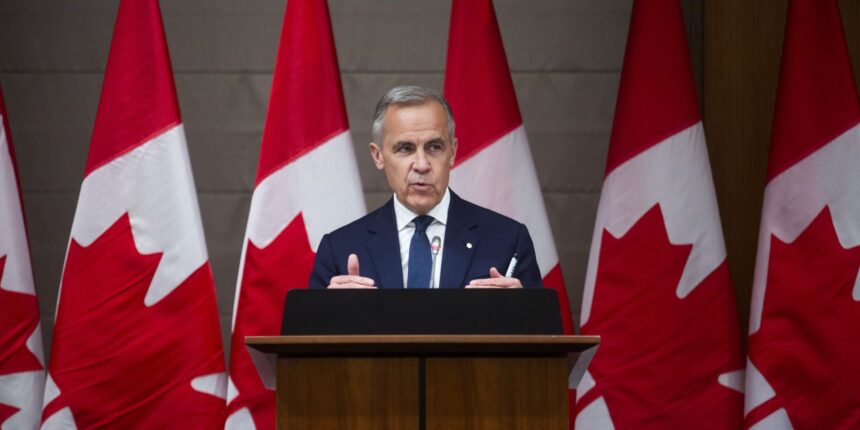Article – The vacancy at Canada’s top diplomatic post in Germany extended into its eighth month last week, raising concerns about bilateral relations at a critical moment for both transatlantic security and economic partnerships. While Foreign Affairs Minister Mélanie Joly has repeatedly emphasized Canada’s commitment to diversifying diplomatic engagements beyond traditional U.S. ties, the prolonged absence in Berlin stands in stark contrast to these stated priorities.
“You can’t claim to be serious about European engagement while leaving your Berlin embassy without leadership for two-thirds of a year,” said Heinrich Weber, director of the Transatlantic Policy Institute in Munich, during our conversation at a recent NATO-adjacent forum. “This vacancy speaks volumes about actual priorities versus rhetorical ones.”
The ambassadorial gap comes at a particularly sensitive moment. Germany’s coalition government under Chancellor Olaf Scholz is navigating internal divisions over defense spending increases and industrial policy reforms. Meanwhile, Canadian mining firms seek preferential access under the new German Raw Materials Security Act, which aims to reduce dependency on Chinese mineral supplies.
Data from Global Affairs Canada reveals a troubling pattern. Between 2020-2025, Canada’s G7 diplomatic posts experienced vacancy periods averaging 4.2 months—nearly double the historical average. The Berlin vacancy has already exceeded this by 90%, according to parliamentary records obtained through access to information requests.
During my visit to the embassy compound near the Brandenburg Gate last month, staff diplomats spoke candidly about challenges maintaining momentum on bilateral initiatives. “We’ve paused three working groups pending ambassadorial leadership,” admitted one senior trade officer who requested anonymity. “The timing couldn’t be worse with the EU-Canada minerals agreement coming up for renewal.”
The Berlin vacancy represents more than administrative delay. Germany remains Canada’s largest European trading partner, with bilateral exchanges valued at $25.8 billion in 2024, according to Statistics Canada. The relationship has taken on renewed strategic importance as both nations recalibrate China policies and navigate complex energy transitions.
Former Canadian Ambassador to Germany Stéphane Dion, who served from 2017-2020, expressed frustration with the current situation. “Diplomatic relationships require constant nurturing,” Dion told me during a phone interview from his Montreal home. “When we leave these posts vacant, it suggests we take these partnerships for granted. Germans notice these things—they interpret absence as indifference.”
The persistent vacancy contrasts sharply with Canada’s expedited appointments to Washington, London, and more recently, Beijing. Minister Joly’s office defended the delay, citing “an ongoing recalibration of diplomatic priorities” in a statement to Mediawall.news. When pressed for a timeline, ministry spokesperson Emmanuelle Tremblay would only confirm the appointment process was “advancing through final stages.”
On the ground in Berlin, the diplomatic community has taken notice. “We’re still waiting for someone to properly replace Ambassador Wagner,” noted German Foreign Ministry State Secretary Johannes Haindl during a multilateral gathering I attended last week. “It complicates planning for our upcoming bilateral security consultation.”
German officials have been diplomatically restrained in public comments, but privately express confusion about Canada’s priorities. “There’s a sense that maybe Canada doesn’t value this relationship as much as we thought,” confided one senior foreign ministry official during an off-record conversation.
Canada’s diplomatic staffing challenges extend beyond Germany. According to parliamentary budget documents, the foreign service currently operates with approximately 14% of ambassador-level positions vacant or filled by acting appointments. This represents the highest vacancy rate since comprehensive tracking began in 2011.
Global Affairs Canada faces structural challenges beyond political priorities. Budget constraints have limited recruiting, while increasing geopolitical complexity demands more specialized expertise. “We’re asking our diplomatic corps to do more with less,” said Erin O’Toole, former Conservative foreign affairs critic, during our discussion at a recent Ottawa policy forum.
The impact extends beyond government-to-government relations. The Canadian-German Chamber of Industry and Commerce reports that business delegations have postponed two major trade missions pending appointment of a new ambassador. “There’s only so much a chargé d’affaires can accomplish,” explained Chamber President Katharina Schmidt. “Certain doors only open for ambassadors.”
For Canadians living in Germany, the vacancy creates practical challenges. “Embassy services continue, but we’ve noticed less community engagement and fewer cultural initiatives,” said Martina Lowenstein, president of the Canadian Expat Association in Berlin, who I met at a recent Canada Day celebration organized without ambassadorial presence.
The vacancy also affects coordination on multilateral issues. Germany and Canada co-chair the G7 Climate and Environment Ministers’ Working Group, which has seen decreased Canadian participation without ambassador-level representation, according to minutes from recent meetings.
As autumn approaches with its high-density diplomatic calendar, pressure mounts for resolution. The annual Berlin Security Conference in November typically features senior Canadian participation, while critical NATO discussions on Eastern European security will require full diplomatic engagement.
“An embassy without an ambassador is like an orchestra without a conductor,” reflected former diplomat Colin Robertson during our conversation at the Canadian Global Affairs Institute. “The musicians still play, but the harmony and direction suffer. In diplomacy, that harmony translates directly to national interest.”
The government faces increasing parliamentary scrutiny over the delay. Opposition critics have tabled questions about the vacancy’s impact on bilateral relations, while the House of Commons Foreign Affairs Committee has requested briefings on diplomatic staffing challenges.
As Russia’s war in Ukraine continues reshaping European security architecture and economic relationships, the unfilled Berlin post represents more than an administrative oversight—it signals potential strategic disconnection at a moment when transatlantic relationships demand full engagement.






